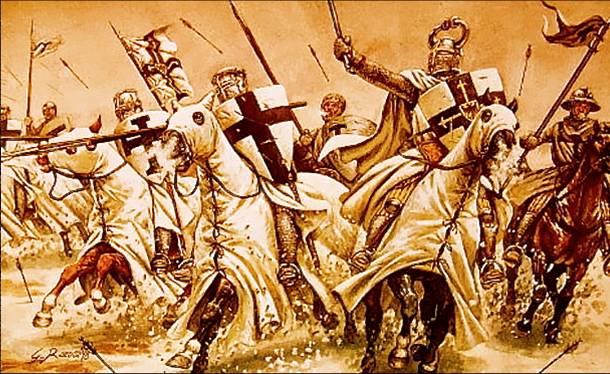"Whoever spares the rod hates his son, but he who loves him is diligent to discipline him." Proverbs 13: 24
"Train up a child in the way he should go; even when he is old he will not depart from it." Proverbs 22: 6
"Foolishness is bound up in the heart of a child; The rod of discipline will remove it far from him." Proverbs 22:15
"Do not withhold discipline from a child; if you strike him with a rod, he will not die. If you strike him with the rod, you will save his soul from Sheol." Proverbs 23: 13, 14
"For the moment all discipline seems painful rather than pleasant, but later it yields the peaceful fruit of righteousness to those who have been trained by it." Hebrews 12: 11
It is not only okay to discipline your children, it is necessary to discipline them, if you love them.
And, by "discipline", the Bible means spanking -- corporal punishment. There is absolutely no ambiguity in these verses. They say, "strike him with a rod." If you fail or refuse to spank your children, you hate them. If you love them, you will be diligent to spank and comprehensively train and discipline them.
This is the first lesson of raising children to glorify God.
I know many parents who could never come to terms not only with this, but also with even telling their children "no." They could not take God at his word and believe and trust Him enough to obey Him in this very basic command. They thought that they were pursuing a better, more enlightened, more loving way, but in reality, they were treating their children as if they hated them.
They did not consistently discipline their young children, and when they got older, they were incapable of saying "no" or of refusing to indulge their whims.
The fruit of these dysfunctional parental relationships with their children is older children who are self-willed, unmoored, disobedient, and drifting from God.
Discipline, including spanking, is an indispensable aspect of raising children to love and glorify God. It is the first requirement, before any other training can happen.
Saying no when your children want to do things that are foolish or dishonoring to God, and not giving in to their persistent pleas, although it can be unpleasant at times, "yields the peaceful fruit of righteousness." It might not seem like it, right after you have spanked your son or daughter, but it will. When you are in the middle of those years, you have to trust that God's Word is true in this as in everything else. I can assure you that His Word is true and you will see the fruit.
You will not find a better way, because there is no better way.
The one who made you and your children has also told you what you need to do to train and discipline them. If you think you will discover a more spiritual, loving, and effective way to raise your children, you are wrong. You are arrogant and the Bible says you hate your children.
Love your children! Teach them at home. Read the Bible to them. Teach them to obey you and God. Show them what love and forgiveness mean. And spank them when they are disobedient.
And, by "discipline", the Bible means spanking -- corporal punishment. There is absolutely no ambiguity in these verses. They say, "strike him with a rod." If you fail or refuse to spank your children, you hate them. If you love them, you will be diligent to spank and comprehensively train and discipline them.
This is the first lesson of raising children to glorify God.
I know many parents who could never come to terms not only with this, but also with even telling their children "no." They could not take God at his word and believe and trust Him enough to obey Him in this very basic command. They thought that they were pursuing a better, more enlightened, more loving way, but in reality, they were treating their children as if they hated them.
They did not consistently discipline their young children, and when they got older, they were incapable of saying "no" or of refusing to indulge their whims.
The fruit of these dysfunctional parental relationships with their children is older children who are self-willed, unmoored, disobedient, and drifting from God.
Discipline, including spanking, is an indispensable aspect of raising children to love and glorify God. It is the first requirement, before any other training can happen.
Saying no when your children want to do things that are foolish or dishonoring to God, and not giving in to their persistent pleas, although it can be unpleasant at times, "yields the peaceful fruit of righteousness." It might not seem like it, right after you have spanked your son or daughter, but it will. When you are in the middle of those years, you have to trust that God's Word is true in this as in everything else. I can assure you that His Word is true and you will see the fruit.
You will not find a better way, because there is no better way.
The one who made you and your children has also told you what you need to do to train and discipline them. If you think you will discover a more spiritual, loving, and effective way to raise your children, you are wrong. You are arrogant and the Bible says you hate your children.
Love your children! Teach them at home. Read the Bible to them. Teach them to obey you and God. Show them what love and forgiveness mean. And spank them when they are disobedient.


